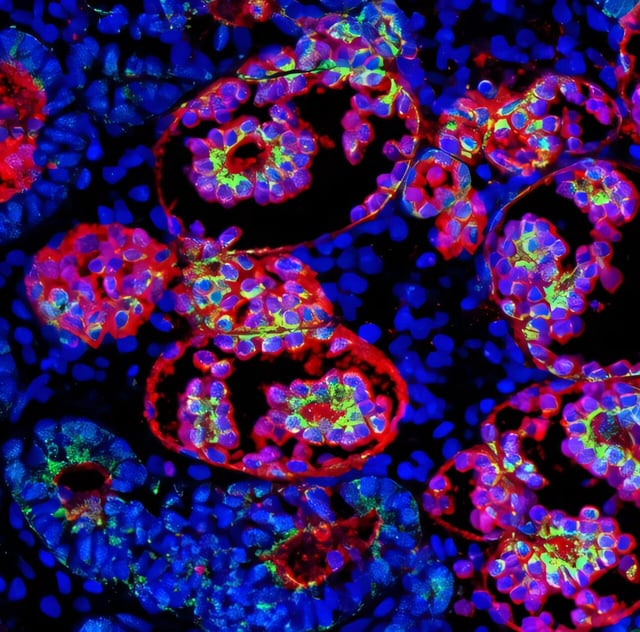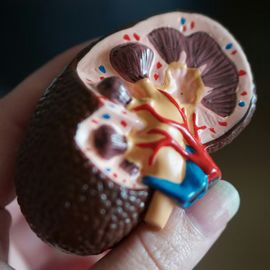Overview
- Researchers at the University of Leiden used patient-derived iPSCs to build kidney organoids that model APOL1-mediated kidney disease, with results published in Stem Cell Reports.
- Comparisons with CRISPR-corrected, patient-matched controls showed that APOL1 G1/G2 variants impair mitochondrial respiration specifically in podocytes.
- Single-cell and spatial analyses revealed reduced oxidative phosphorylation and TCA cycle activity with compensatory glycolysis and hypoxia signaling, alongside altered mitochondrial morphology.
- Interferon-gamma exposure sharply worsened energy defects in mutant podocytes, a finding that aligns with disease onset or acceleration following infections or autoimmune activity.
- Because APOL1 is not expressed in rodents, the human organoid platform addresses a key modeling gap and provides a tool for mechanistic studies and therapeutic screening, with no targeted treatments yet available.

